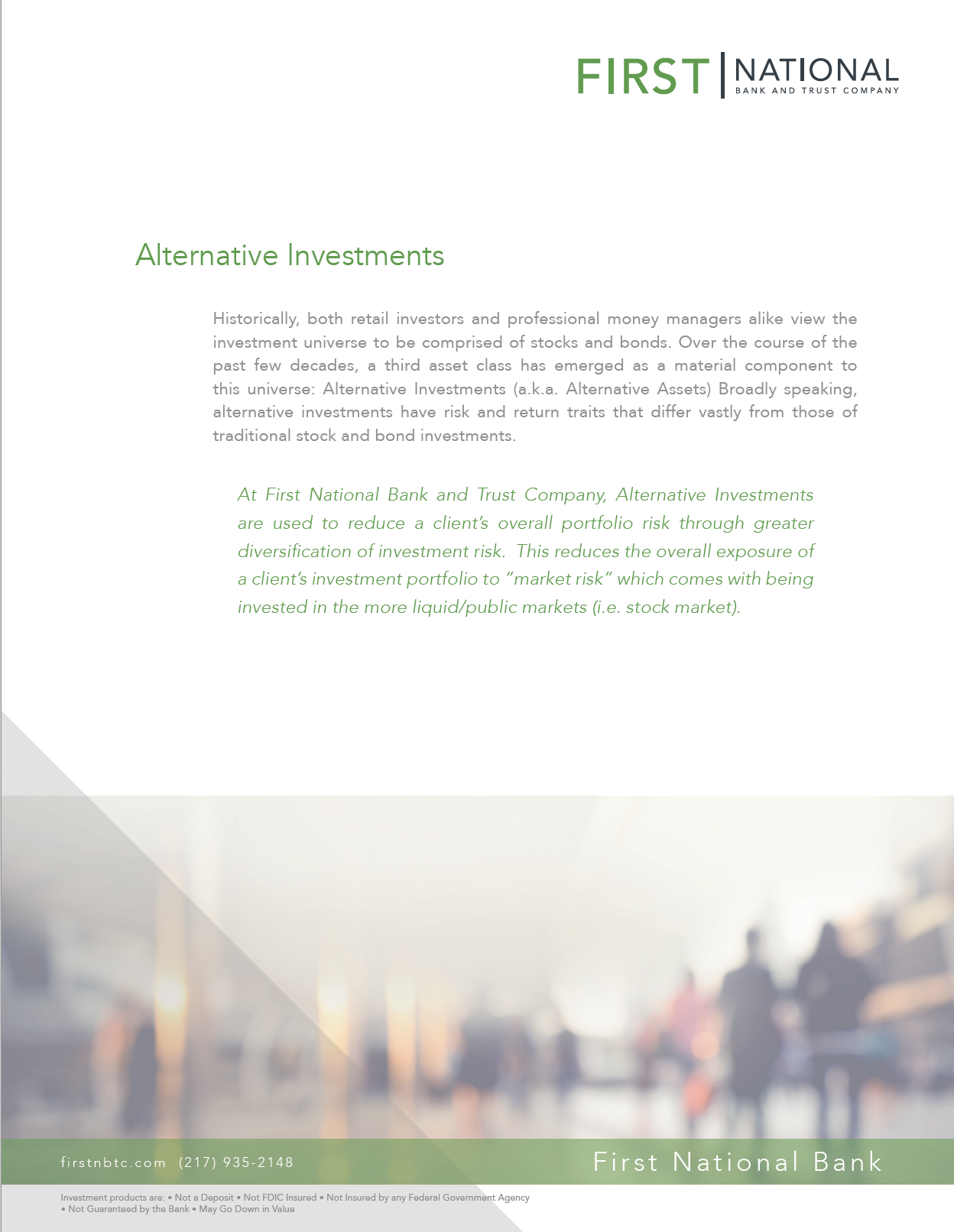Historically, both retail investors and professional money managers alike view the investment universe to be comprised of stocks and bonds. Over the course of the past few decades, a third asset class has emerged as a material component to this universe: Alternative Investments (a.k.a. Alternative Assets). Broadly speaking, alternative investments have risk and return traits that differ vastly from those of traditional stock and bond investments.
To download our free white paper, fill out the form below!

Real Estate
Indirect investments in real estate include investing in companies or funds engaged in real estate ownership, development, or management such as the following:
- REOCs: real estate operating companies
- REITS: publicly traded equities representing pooled investments in real estate properties or debt
Commodities
Examples of commodities include energy (crude oil, natural gas, refined petroleum products), industrial metals, grains, livestock, precious metals, and soft goods (coffee, cotton, sugar, cocoa).
Unlike most investment classes, a direct investment in commodities does not generate cash flow; an inventory of gold, lumber, or oil can only generate a return to an investor to the extent their price appreciates.
Private Equity
A private equity fund is a pooled investment vehicle through which many investors commit capital to the fund’s management to invest in generally highly illiquid assets.
Common traits of private equity include illiquidity, long term capital commitments, higher risk in comparison to a seasoned public equity investment, and high expected returns.

